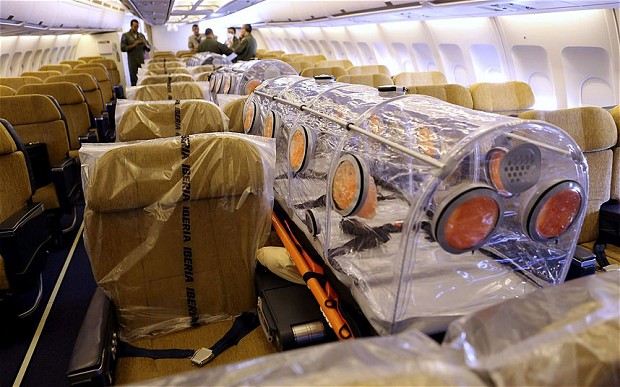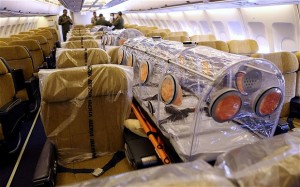20th of October, 2014 was a good day; Nigeria was declared Ebola-free by the World Health Organization (WHO) after 42 days with no new cases of the Ebola Virus Disease (EVD). The case is not so for Sierra Leone, and most especially Liberia; both of which are still battling serious outbreaks of Ebola. Of the 20 cases in Nigeria, 8 died. For Liberia, more than 2000 people have been confirmed to have lost their lives to the virus. Currently there are 3 confirmed cases in the USA, with 1 fatality.
For a large country with challenges to the health sector, the international community has been asking questions as to how Nigeria has been able to successfully contain the outbreak of Ebola Virus Disease. A few important strategies have been monumental to that success.
Communication
This is about the most important and effective component in the containment of the spread of Ebola. From the moment the illness was diagnosed at First Consultants Hospital in Lagos, there has been a surprisingly efficient communication collaboration between the federal and state governments, the country office of WHO in Nigeria, and every member of the health sector.
The media and ordinary citizens were also instrumental to the success. From TV adverts, fliers and tweets, to Facebook posts and online memes, Nigerians were adequately informed about the facts of Ebola Virus Disease (EVD), its mode of transmission and cure. Apart from the Bring Back Our Girls Campaign, the spread of information about Ebola in Nigeria has been one of the most efficient.
Effective communication helped to create awareness and this was very important in halting the further transmission of the virus. People know what Ebola is, and what to do to avoid it. They also know what steps to take if they discover that they, or someone they know, has possibly been infected with the virus.
Health Care
I have to say the healthcare sector’s response was outstanding. The construction of isolation wards, activation of Ebola helpline, and the monitoring of people who had contact with the first patient; all were done without delay. Healthcare professionals even went as far as tracing patients who ran away from quarantine, and actually bringing them back in. Ebola came at a very challenging time for the health sector; doctors’ strikes and the unexpected cancellation of the Residency scheme which put thousands of doctors out of work. This still didn’t hamper the response toward Ebola.
Compliance
There were people with suspected cases of Ebola calling the helplines for assistance. For the most part, patients did not engage in the usual practice of self-medicating or ‘praying away’ their ailment, but rather, quick self-isolation or contacting the appropriate authorities as soon as they noticed the symptoms. This helped to prevent patient to family transmission, as those who live with, or care for an Ebola victim are primarily at the most risk.
Nigeria’s response towards Ebola has been impressive, no doubt, but we must keep in mind that as long as transmission rates remain high in other African countries, we can’t afford to relax. We can’t step down efforts or move on, because land, sea and air travel still poses a very significant threat to the containment of the Ebola Virus Disease.
About the author: Amina Salau is a writer and editor running The Illuminated Pen. You can find her online at www.theilluminatedpen.com and on Twitter (@_Aminah)



